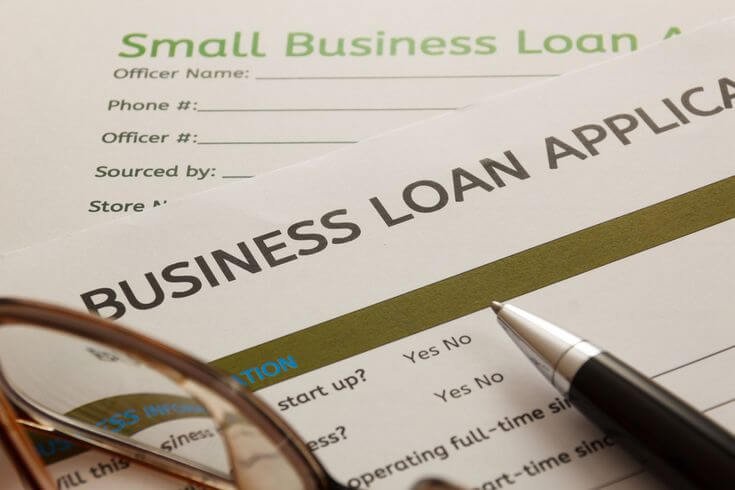When it comes to financing a small business, selecting the right type of loan can be crucial. If you’re aiming to grow your business, manage operational costs, or invest in new equipment, there’s a financing solution designed to fit your goals.
However, with so many choices available, finding the best fit can be overwhelming. The truth is, there’s no one-size-fits-all answer; the best loan for your business depends on factors like how much you need, how quickly you need it, and what you qualify for. Some loans are great for long-term investments, while others help with short-term cash flow gaps.
What is a Small Business Loan?
A loan for a Small business is a financial product designed to provide businesses with the capital they need to start, grow, or maintain operations. Unlike personal loans, these are specifically structured for business use, meaning lenders evaluate factors like revenue, credit history, and business plans before approval.
Loans can come from banks, credit unions, online lenders, or even government-backed programs like the Small Business Administration (SBA). The amount you can borrow, repayment terms, and interest rates vary widely depending on the lender and your business’s financial health.
One of the biggest advantages of a business loan is that it provides immediate funding without requiring you to give up ownership (unlike investors). However, not all loans are the same; some are better for short-term needs, while others are ideal for long-term investments.
Understanding the different types of loans for small businesses helps you make an informed decision so you don’t end up with a loan that doesn’t suit your needs.

READ MORE
Can You Get a Personal Loan With No Credit History?
Why Do Loan Applications Get Rejected?
Ways to Spot Personal Loan Scams and Protect Your Finances
What Are the Types of Loans for a Small Business?
1. Term Loan
A term loan is one of the most straightforward types of loans for a small business. You borrow a lump sum and repay it (plus interest) over a fixed period, usually between one to ten years. These loans are ideal for major expenses like expansion, equipment purchases, or hiring staff.
Pros:
Fixed repayment schedule makes budgeting easier.
Lower interest rates compared to short-term loans.
Can be used for almost any business need.
Cons:
Requires good credit and strong financials for approval.
May require collateral for larger amounts.
Banks and online lenders offer term loans, but approval criteria vary. If you have strong credit and need funds for a big investment, this is a solid choice.
2. Invoice Financing
If your business deals with delayed customer payments, invoice financing can help bridge the gap. With this type of loan for a small business, you borrow against unpaid invoices, usually up to 90% of their value. Once your customer pays, you repay the lender (plus fees).
Pros:
Fast access to cash without waiting for clients to pay.
Approval depends more on your clients’ credit than yours.
Cons:
Fees can be high, especially if invoices take long to clear.
Not ideal for businesses with few or unreliable clients.
This option works well for B2B companies with slow-paying customers but steady invoicing.
3. Invoice Factoring
Similar to invoice financing, invoice factoring involves selling unpaid invoices to a lender at a discount (usually 70%-90% of their value). The lender then collects payment directly from your customers.
Pros:
Immediate cash flow relief.
No need to chase late-paying clients.
Cons:
You lose control over customer payments.
Fees reduce overall profit.
This is best for businesses that need quick cash and don’t mind handing over collections to a third party.
4. Merchant Cash Advance (MCA)
An MCA provides a lump sum in exchange for a percentage of future credit/debit card sales. Repayments adjust based on daily sales, making it flexible for seasonal businesses.
Pros:
Easy approval, even with bad credit.
No fixed monthly payments, repayments adjust with sales.
Cons:
Extremely high fees (factor rates can make it very expensive).
Can strain cash flow if sales drop.
Only consider an MCA if you have consistent card sales and no other financing options.
5. Business Line of Credit
A business line of credit works like a credit card, you’re approved for a maximum amount and only pay interest on what you use. It’s perfect for managing cash flow gaps or unexpected expenses.
Pros:
Flexible, borrow as needed.
Reusable once repaid.
Cons:
Higher interest rates than term loans.
May require personal guarantees.
Great for businesses with fluctuating expenses or seasonal revenue dips.
PEOPLE ALSO READ
Steps to Improve Credit Score Before Applying for a Loan
Platforms To Get Instant Loan In Nigeria
Conclusion
Choosing the best type of loan for a small business depends on your specific needs, financial health, and repayment ability. Term loans are great for big investments, while invoice financing helps with cash flow. MCAs are quick but costly, and lines of credit offer flexibility.
Before applying, compare lenders, check interest rates, and ensure the loan aligns with your business goals. The right financing can fuel growth, just make sure you pick the one that fits your situation best.
